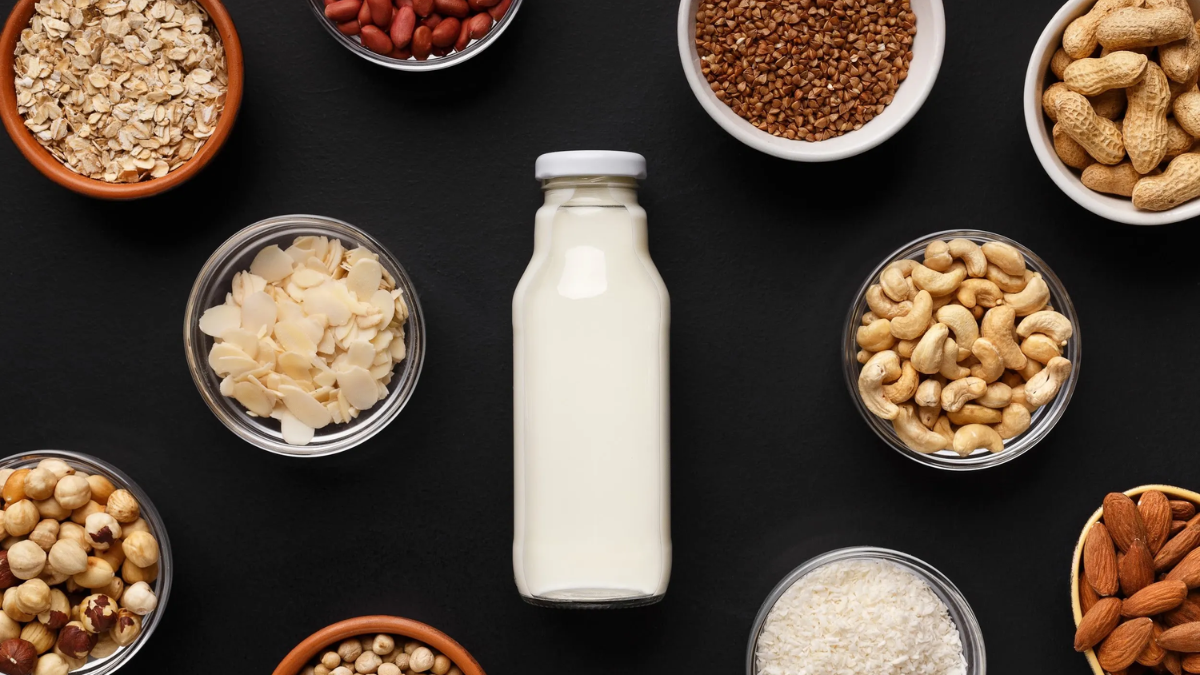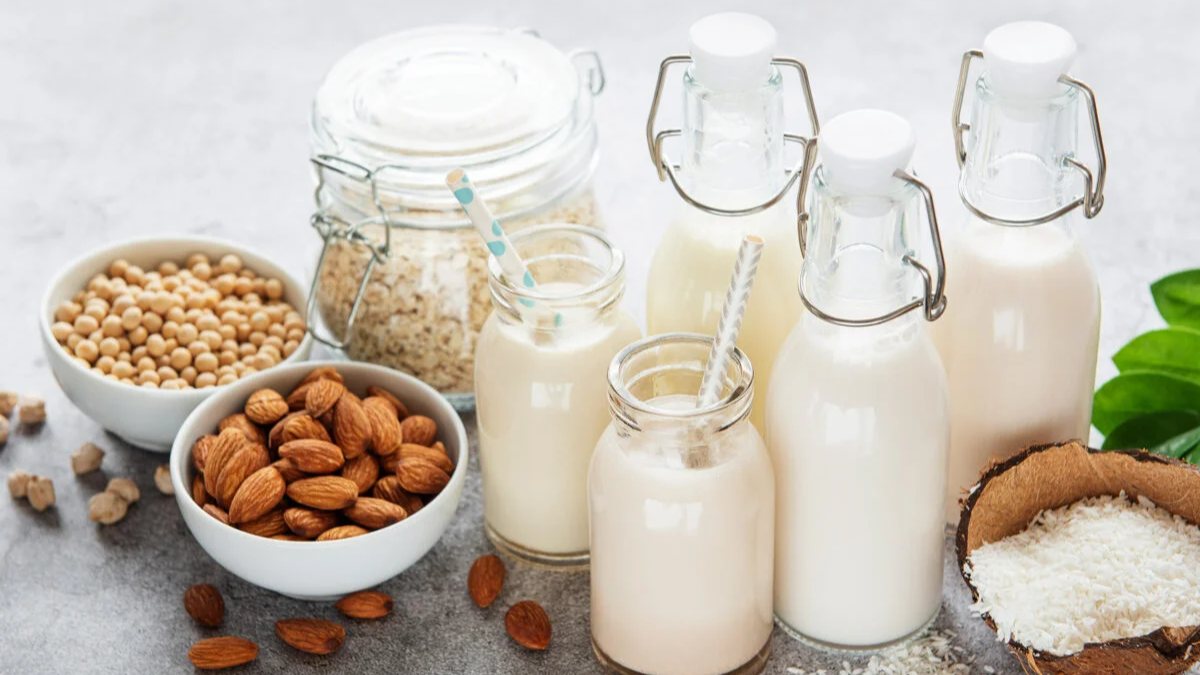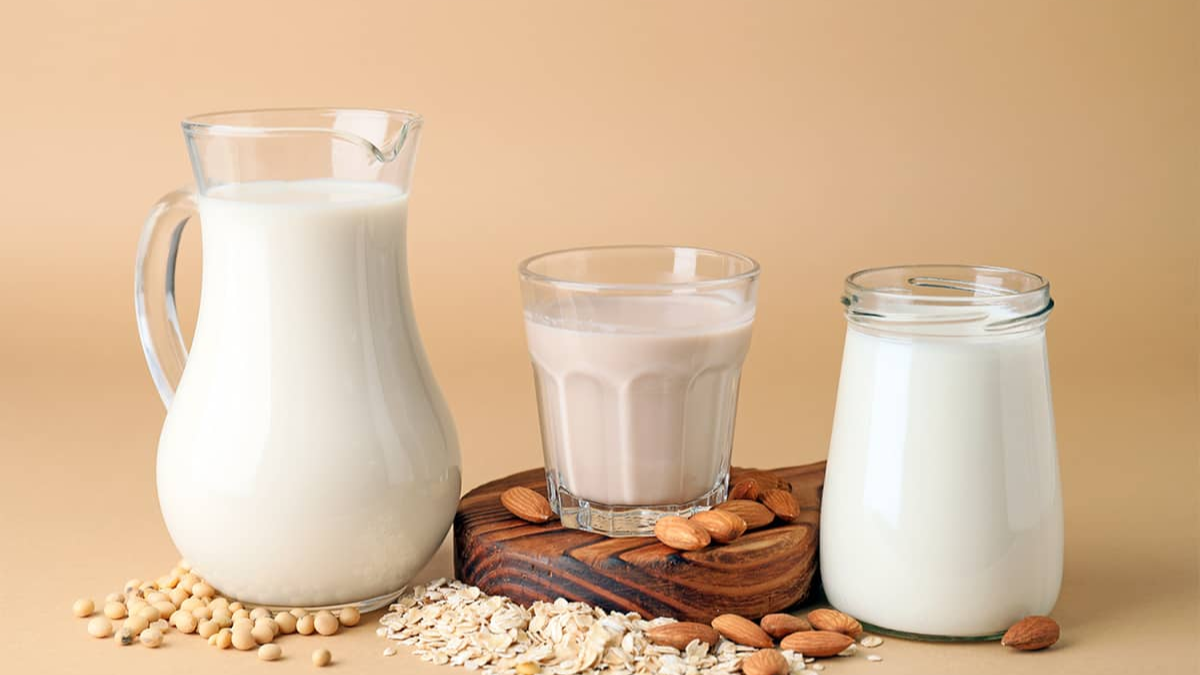Milk plays a significant role in our everyday nutrition. We all drink milk in one way or another, whether in tea, coffee, shakes, smoothies, or raw. In addition, milk’s numerous health advantages make it crucial for our bodies’ overall wellbeing. Minerals and vitamins are abundant in milk. It is a great source of calcium, vitamin D, potassium, and B12. In addition, milk has many fatty acids, including conjugated linoleic acid (CLA) and omega-3s, and is a great source of protein.
Milk is a rich food that can be a part of a balanced diet. In recent years, the number of milk and its substitute options has expanded in dairy aisles, and picking the healthiest milk involves more than just considering its lipid content. What sort of milk is the healthiest for you may be a question if you want to explore other possibilities or if you want to avoid drinking cow’s milk for dietary or health reasons. When choosing the ideal type of milk for you, it is best to consider your unique nutritional requirements. Keep in mind variables like your current weight, nutrition, degree of activity, and age, in addition to other things.
Which Milk is the Healthiest?
Although soy milk is a viable replacement from a nutritional standpoint, dairy milk usually wins out regarding vitamin quality. Furthermore, these substitutes aren’t milked since they aren’t derived from mammals.
Dairy Milk
Important nutrients like calcium, protein, vitamin B12, vitamin A, vitamin D, riboflavin (B2), zinc, phosphorus, and iodine are all present in milk. Both whey and casein contain all nine required amino acids, demonstrating the high quantity and quality of the proteins in cow’s milk.
Milk is a particularly rich source of dietary calcium and has a significant role in maintaining bone health. According to research on this subject, dairy and its derivatives are the finest sources of calcium that the body can absorb and use.
Even though dairy products may include some saturated fats, these fats don’t seem to pose a significant threat to heart health. Dairy consumption was linked to a lower risk of heart disease and death, according to a comprehensive study that included participants from 21 nations, and was published in 2018.
Despite the high nutritional value of dairy milk, people have no incentive to drink it if they don’t want to. The diet can provide all of the nutrients found in milk.
Soy Milk
Soy is a good alternative if trying to avoid dairy (though some people may be intolerant to soy). It is produced with powdered soybeans or soy protein, water, and vegetable oils and is frequently enriched with vitamins and minerals, including calcium.
According to a 2017 study, soy had a much superior nutritional profile than other milk substitutes like almond, soy, rice, and coconut.
Soy is a good source of plant protein, carbs, and B vitamins and is available in full-fat and low-fat varieties. Most soy products are also calcium-fortified, making them nutritionally comparable to dairy milk. The extra calcium in soy drinks can be absorbed and used by the body almost as well as dairy milk.
Although there seems to be little information on this, one study suggested that calcium from fortified soy drinks was absorbed with 75% of the effectiveness of calcium from dairy milk. It often has more protein than other plant-based substitutes, fiber, and good unsaturated fats.
Almond Milk
Drinks made from nuts, like almonds, mostly contain water and groundnuts. Even though almonds are a rich plant source of protein, almond milk has a far lower protein and calcium content than dairy milk. Consumers should take care of an almond beverage to ensure that other parts of the diet receive the necessary nutrients.
Consumer organization Choice reviewed widely accessible commercial almond milk in 2017 and discovered that only 2–14% of the products contained actual almonds, with water making up most of the ingredients. It typically has modest calories and saturated fat levels and some beneficial unsaturated fats, vitamin E, manganese, zinc, and potassium.
Sugars are frequently added to almond drinks. Watch out for terms that denote additional sugars, such as organic corn maltodextrin, organic evaporated cane juice, organic evaporated cane juice, organic rice syrup, and organic agave syrup. If at all possible, try to choose unsweetened varieties.
Oat Milk
Making oat milk involves blending oats and water, then filtering the resulting liquid. Fiber, vitamin E, folate, and riboflavin are all found in it. Since it has twice as many carbohydrates as cow’s milk and is low in fat, it may not suit people with diabetes.
Find a brand that has been fortified as it typically contains low levels of calcium and protein. It is not suitable for those who cannot consume gluten, nor is it a viable substitute for young children in terms of nutrition.
Coconut Milk
Coconut milk is heavy in saturated fat and low in protein and carbs. It lacks naturally occurring calcium and is not nutritionally equivalent to dairy milk, much as nut drinks. Some brands have added sugars.
Rice Milk
Water and milled rice are combined to create rice beverages. It is naturally high in carbohydrates and sugars. It has a high glycaemic index, which means that the glucose is released into the blood fast, making it potentially unsuitable for persons with diabetes. It also has to be calcium-fortified and is very low in protein.
Of all the milk substitutes, rice has the lowest risk of inciting allergies. Due to its poor nutritious quality, it is not a good milk alternative, especially for children.
Which Milk should we Consume?
Traditional cow’s milk is a strong source of calcium, vitamin D, and potassium, three nutrients most Americans don’t receive enough. Cow milk, the most popular type of dairy milk, is a good source of high-quality protein. It naturally contains a lot of minerals, B vitamins, and calcium. It is nutritious for kids and adults because it contains vitamin A and D.
Here are the Health Benefits of Consuming Cow Milk:
Helps Lower Blood Pressure
A good dose of calcium, iodine, vitamin B12, and protein can be found in cow’s milk. Additionally, it contains casein and whey, which have been reported to help decrease blood pressure, and magnesium, which is crucial for maintaining healthy bones and muscles.
Contains True-Quality Protein
Plant-based milk such as soy, almond, coconut, rice, oats, and others have less research than cow’s milk. Since soy milk is the only alternative with a similar protein content to cow’s milk, it is the ideal substitute for this beverage in terms of protein.
Be aware, though, that these proteins may not be “real” proteins in alternate drinks. For youngsters and the elderly, especially those with an absolute need for high-quality protein for bone formation, this means a protein significantly lower quality than that found in milk, which is a crucial point.
Helps Prevent Weight Gain
There is no basis for the widespread belief that milk is a fattening beverage. In actuality, milk contains several nutrients that may help people lose weight and avoid gaining it. For instance, its high protein level makes you feel fuller for longer, which may help you avoid overeating. The efficacy of milk’s conjugated linoleic acid to accelerate weight loss by encouraging fat breakdown and preventing fat formation has also been researched.
Furthermore, several studies have linked diets high in calcium to a reduced risk of obesity. According to research, persons who consume more calcium in their diet are less likely to be overweight or obese. High dietary calcium intake has been demonstrated in studies to encourage fat breakdown and prevent the body from absorbing fat.
Maintains Heart Health
A higher potassium consumption and a lower salt intake are crucial for lowering the risk of cardiovascular disease, according to the American Heart Association. According to studies, about 25% of women who drank the most potassium had a 27 percent lower risk of ischemic stroke and a 21 percent lower risk of stroke. You can also choose skim or low-fat cow’s milk for the finest results.
Helps with Inflammatory Issues
Cow’s milk is a potent anti-inflammatory because it contains full animal proteins, omega-3 fatty acids, and antioxidant components. Milk has frequently been advocated as a treatment for inflammatory conditions, including taking milk to ease digestive discomfort following a spicy meal.
Boosts Immune
Cow’s milk is a great source of protein, selenium, zinc, vitamin E, and other valuable minerals in addition to calcium. Natural milk from grass-fed cows has been linked in research to boosting immunity and disease prevention. Your skin’s look and youthfulness can also be enhanced by it.
There is no compelling reason to convert cow’s milk to a plant-based alternative if you have been consuming it. All the nutrients you require are in cow’s milk, and studies have shown that it has numerous health benefits. Therefore, you can enjoy cow’s milk as a flexible component for the entire family unless you are allergic to it or lactose intolerant.
There are various milk substitutes on the market if dairy is not an option for you (due to taste preferences, being vegan, vegetarian, or having lactose issues). Like reduced-fat and skim milk, milk substitutes are fortified with vitamins and nutrients using non-dairy ingredients. If milk and milk substitutes are sweetened with additional sugars, their sugar content might increase twofold. Pick the unsweetened variations of each variety.
Conclusion
All types of milk and its substitutes have several health benefits, including lowering cholesterol, increasing antioxidant intake, and protecting against food allergies and intolerances. It might be a good idea to vary the milk you consume. By doing so, you get the most out of each one, especially if you combine drinking them with a diet high in natural foods.
Always read the labels to look for substances like extra sugar or undesired additives, and stay away from products that contain them. Plant milk contains less protein and other nutrients than cow’s milk, except soy milk. Although that’s not a big deal for adults and older kids, you should check with your pediatrician to see if plant milk is safe for young kids.


